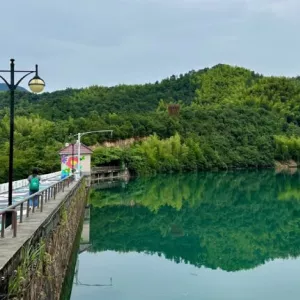Reconciling and harmonizing rural development, food security, equity and social inclusion, and conservation remains challenging for low- and middle-income countries (LMICs) as they work toward meeting the Sustainable Development Goals. Payment for environmental services (PES) offers a promising, market-based approach to these challenges, helping to encourage ecosystem service (ES) provision and improve conservation outcomes through financially rewarding small-scale farmers.
For example, the Silvopastoral Project in Colombia, funded by the Global Environment Facility and the World Bank with private sector engagement, pays farmers for converting degraded pastures into silvopastoral systems while maintaining agricultural productivity. Government-led PES programs such as Costa Rica’s National PES Program and China’s Eco-Compensation Pilot in the Xin’an River Basin provide payments to upstream farmers and communities for watershed protection.
By rewarding smallholder farmers in LMICs and other ES providers, PES can help to alleviate poverty and foster rural development, demonstrating great potential for delivering outcomes that benefit both ecosystems and communities.


